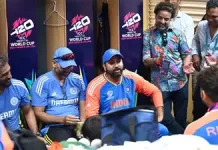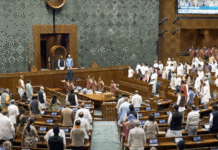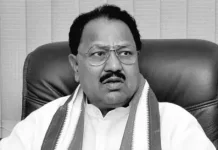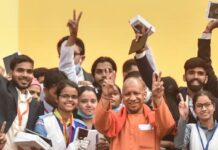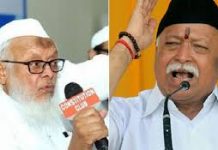The Pune resident first remembers riding a horse when he was only 10 years old and his parents took him to a small location run by a tongawala where kids could ride horses during the summer.
Ashish Limaye will complete a unique journey that began with him learning the sport while riding horses owned by a tongawala, or a person who pulls a horse-drawn cart, when he competes in the next Asian Games in Hangzhou. It’s a trip that he put on hold for a while to study engineering, but then picked back up when he started teaching kids how to ride horses.
Limaye, who is from Pune but has spent the last two years living in Europe, has earned the right to represent India in the equestrian sport of eventing, which pits horses and riders against one another in a mix of three disciplines: dressage, cross country, and show jumping.
The Pune resident first remembers riding a horse when he was only 10 years old and his parents took him to a small location run by a tongawala where kids could ride horses during the summer.
“Near my house, they used to have a sort of summer camp. And at a little ground, they would essentially let youngsters ride horses in a circle, he recalls.
Given that he only recently converted from show jumping to eventing, Limaye has been rubbing his eyes in shock after qualifying for the Asian Games.
Fouad Mirza, the first Indian equestrian to win an individual Asian Games medal since 1982, won a silver medal in the eventing competition at the most recent Asian Games in Jakarta.
Limaye’s parents were doctors, in contrast to Mirza who comes from a long family of riders. They learned how much he liked riding horses from the camp, and that was enough for them. They soon took him to Arjuna Awardee Col. JM Khan, who had formerly been a well-known equestrian coach in Pune, on the advice of a family member.
He soon discovered that going pro in the sport was an unaffordable endeavour, therefore he made the decision to concentrate on his education. Limaye put his ambition on wait while working towards his engineering degree for almost four years.
“I could hardly ride while I was in Class XII and in my first four years of engineering college. Throughout the gap, I was involved with the sport, but I wasn’t competing,” he claims.
By the third year of engineering school, the desire to ride had returned.
“I participated in the nationals my third year. I only participated in one competition the entire year. However, I fully returned to the sport after earning my degree.
When Embassy International Riding School (EIRS), a riding school with its headquarters in Bengaluru, decided to take a risk on Limaye, it was his big “break.”
“I had been racing in India for a while when they first approached me about sponsorship. However, they also wanted to check out my work ethics. So they invited me to instruct children at their facility in Bengaluru. Before I was transferred abroad to train, I worked there for two years, he claims.
One of Limaye’s best opportunities, in his opinion, was the two years he spent instructing kids. At the EIRS facility, he was training roughly 20 of them, and they went on to compete at the junior nationals at the age group level.
“I was not only at the top civilian equestrian facility in India; when I went to riding school, I had about ten horses there. Every day, I could ride five to ten horses. I didn’t actually have access to riding on that many horses before that. To be completely honest, that experience made me famous in India,” claims Limaye.
“You can ride on them for about an hour or so if you have one horse,” he explains. However, if you have 10, you will advance much more quickly.
EIRS decided to send him to Europe for training in order to pursue Asian Games qualifying after observing his development. Limaye has been in France for the past two months. He spent the two years prior there as his base of operations.
The biggest issue for Limaye over the next three months as the Asian Games draw near is choosing which horse he will ride to Hangzhou, as he has qualified on both Dinard Penguinan and Willy Be Dun.
“I’m not sure which horse I’ll ride to China right now. Right now, I don’t have a preference. Mid-September will mark my decision. Having a choice is a nice situation to be in. We always agree that the best course of action is to wait as long as possible when I discuss which horse to ride with my coaches,” he explains.
“Dinard Penguinan is incredibly delicate. He has a tendency to get quite anxious and withdraw. He will, nonetheless, do whatever you ask of him. He typically doesn’t make his own decisions. He will blindly follow your decisions. Willy Be Dun, on the other hand, has a unique personality. He brags a little bit more than Dinard. You must approach him with more intelligence because he has a brain of his own. He is braver. Both, though, are fiercely rivals. To pick one will undoubtedly be challenging, he chuckles.

